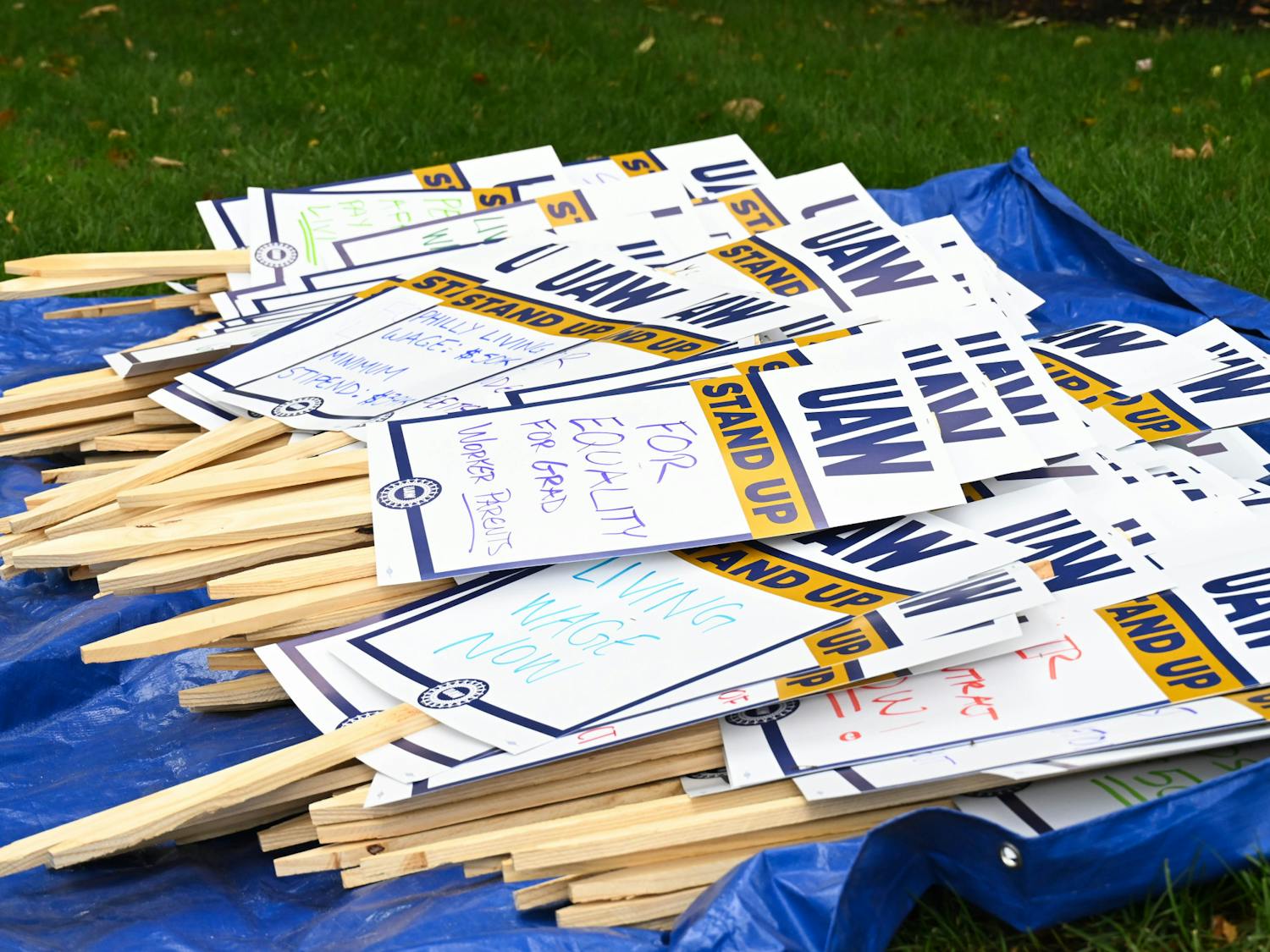Tyrone Pitts was steaming. Pitts, who won four letters playing for the Penn men's basketball team in the mid-1980s and captained the 1987-88 squad, had just been smacked in the face by a player from Brown. And nobody -- neither his teammates nor his coaches -- was going to calm him down. "I was furious," Pitts said. "Nobody could cool me down." Finally, somebody did. Howard Mitchell, a Wharton professor of organizational psychology, came down to the sideline from the stands and got Pitts to regain his composure. It sounds like an extraordinary scene, but only to someone who doesn't understand how important Mitchell is to the basketball program and how close he is to the players. Nobody else could have brought Pitts back to earth. "He was the only one," Pitts said. Mitchell has been doing things like that for Penn basketball teams for more than 35 years. So last Wednesday night at the team's post-season banquet, he was finally honored for his service. "Take a look around you," said Carl Robbins, captain of the 1969-70 team, after he and a group of former Penn greats posed for pictures with Mitchell. "These are all great people, and Dr. Mitchell had something to do with that." Robbins, who is now involved with the Friends of Men's Basketball club, was the one who suggested honoring Mitchell. His idea received complete support, and it brought back players from several eras in Quakers basketball history. Corky Calhoun (who played from 1969-72) was at the Penn Tower Hotel for the festivities, as were Craig Littlepage (1970-73 and head coach from 1982-85) and Pitts, to name just a few. That positive response is indicative of the effect Mitchell has had on players, especially African American ones, since he became involved with the program 37 years ago. Mitchell, who retired from full-time teaching two years ago, came to Penn as a psychologist in 1954. He was just the second black professor to get tenure at the University, and he would later become the first black professor in the country to hold an endowed professorship. And although he was a huge college basketball fan, it was academic curiosity that first drew him to Quakers basketball. In 1960 a physiologist friend who had studied Cal's NCAA championship team of a year before suggested a similar project with the Penn team. They sold Quakers coach Jack McCloskey on the idea, and for the next two seasons Mitchell studied the players on the team, conducting performance tests and collecting psychological profiles. "For example, I raised the question, 'What unique qualities do all very good shooters have'?" Mitchell said. "They'll tell you they're just feeling it. But when you ask them, they can't really explain it." Mitchell came up with the idea of having players throw darts so he could correlate their performance to their shooting percentage. He found a very high correlation between the ability to throw darts accurately and the ability to shoot. As Mitchell saw more and more of the team, he became more and more involved with it. "McCloskey and I had a lot of contact," Mitchell said. "He then started asking me for informal advice on problems the players were having. Then the next year, when he was bringing recruits in, he asked me if I would talk to them. That's a role that still goes on." Indeed, Mitchell has continued his involvement with the Quakers through all of their different coaches. He has also been a fixture in the stands, holding the same seats for 41 years and making 75 percent of the team's road games. He has even managed to talk to members of recent recruiting classes despite suffering two heart attacks in the last 13 months. Current sophomore swingman Frank Brown first met Mitchell on a recruiting trip. Brown said it was a recruiting experience unique to Penn. "I was talking to him about Penn and Wharton," Brown said. "He gave me a book to read, and I kept in contact with him." Mitchell had been a star athlete in college, playing football, basketball and baseball at Boston University, whose Hall of Fame he was inducted into last year. He even pitched for the New York Black Yankees of the Negro Leagues in 1941. So Mitchell knew what it was like to be an athlete, and he knew what it was like to be a black college student in a mostly white environment. Consequently, he was someone black players at Penn could turn to for help and advice. "He helped me tremendously in terms of adjusting from high school to college," said Pitts, who still talks with Mitchell a few times a year. "I could always go to him about anything." Words like "mentor," "advisor" and "father figure" come up repeatedly when friends discuss Mitchell. And none of the former players hesitate to credit him for affecting their lives in a positive way. "Everyone of [the former players] is a great guy," said Tony Jannetta, the president of Friends of Men's Basketball. "They're articulate, they're successful, they understand the world and have overcome a lot of adversity. And I think everyone of them owes a piece of that to Dr. Mitchell."
The Daily Pennsylvanian is an independent, student-run newspaper. Please consider making a donation to support the coverage that shapes the University. Your generosity ensures a future of strong journalism at Penn.
Donate







